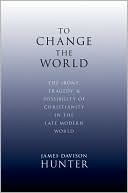List Books » To Change the World: The Irony, Tragedy, and Possibility of Christianity in the Late Modern World
Category Books
- Fiction Books & Literature
- Graphic Novels
- Horror
- Mystery & Crime
- Poetry
- Romance Books
- Science Fiction & Fantasy
- Thrillers
- Westerns
- Ages 0-2
- Ages 3-5
- Ages 6-8
- Ages 9-12
- Teens
- Children's Books
- African Americans
- Antiques & Collectibles
- Art, Architecture & Photography
- Bibles & Bible Studies
- Biography
- Business Books
- Christianity
- Computer Books & Technology Books
- Cookbooks, Food & Wine
- Crafts & Hobbies Books
- Education & Teaching
- Engineering
- Entertainment
- Foreign Languages
- Game Books
- Gay & Lesbian
- Health Books, Diet & Fitness Books
- History
- Home & Garden
- Humor Books
- Judaism & Judaica
- Law
- Medical Books
- New Age & Spirituality
- Nonfiction
- Parenting & Family
- Pets
- Philosophy
- Political Books & Current Events Books
- Psychology & Psychotherapy
- Reference
- Religion Books
- Science & Nature
- Self Improvement
- Sex & Relationships
- Social Sciences
- Sports & Adventure
- Study Guides & Test Prep
- Travel
- True Crime
- Weddings
- Women's Studies
To Change the World: The Irony, Tragedy, and Possibility of Christianity in the Late Modern World »

Authors: James Davison Hunter
ISBN-13: 9780199730803, ISBN-10: 0199730806
Format: Hardcover
Publisher: Oxford University Press, USA
Date Published: April 2010
Edition: (Non-applicable)
Author Biography: James Davison Hunter
James Davison Hunter is LaBrosse-Levinson Distinguished Professor of Religion, Culture and Social Theory at the University of Virginia and Director of the Institute for Advanced Studies in Culture. He is the author of Culture Wars and The Death of Character.
Book Synopsis
The call to make the world a better place is inherent in the Christian belief and practice. But why have efforts to change the world by Christians so often failed or gone tragically awry? And how might Christians in the 21st century live in ways that have integrity with their traditions and are more truly transformative? In To Change the World, James Davison Hunter offers persuasive—and provocative—answers to these questions.
Hunter begins with a penetrating appraisal of the most popular models of world-changing among Christians today, highlighting the ways they are inherently flawed and therefore incapable of generating the change to which they aspire. Because change implies power, all Christian eventually embrace strategies of political engagement. Hunter offers a trenchant critique of the political theologies of the Christian Right and Left and the Neo-Anabaptists, taking on many respected leaders, from Charles Colson to Jim Wallis and Stanley Hauerwas. Hunter argues that all too often these political theologies worsen the very problems they are designed to solve. What is really needed is a different paradigm of Christian engagement with the world, one that Hunter calls "faithful presence"—an ideal of Christian practice that is not only individual but institutional; a model that plays out not only in all relationships but in our work and all spheres of social life. He offers real-life examples, large and small, of what can be accomplished through the practice of "faithful presence." Such practices will be more fruitful, Hunter argues, more exemplary, and more deeply transfiguring than any more overtly ambitious attempts can ever be.
Written with keen insight, deep faith, and profound historical grasp, To Change the World will forever change the way Christians view and talk about their role in the modern world.
Publishers Weekly
“To change hearts and minds” has been the goal of modern Christians seeking to correct a culture deemed fallen and morally lax. Hunter (Culture Wars), a distinguished professor of religion, culture, and social theory at the University of Virginia, finds this approach pervasive among Christians of all stripes and in every case deeply flawed. It can even “undermine the message of the very gospel they cherish and desire to advance.” In three “essays”—groups of chapters developing a concept—Hunter charts the history of Christian assumptions and efforts, investigates the nature of power and politics in Christian life and thought, and then proposes a theologically sound alternative: what he calls the practice of “faithful presence.” This practice has “benevolent consequences... precisely because it is not rooted in a desire to change the world... but rather it is an expression of a desire to honor the creator of all goodness, beauty, and truth.” Well reasoned and thought provoking, Hunter’s corrective argument for authentic Christian engagement with the world is refreshing, persuasive, and inspiring. (Apr.)
Table of Contents
Essay One Christianity and World Changing Essay Two Rethinking Power Essay Three Toward a New City Commons: Reflections on a Theology of Faithful Presence
Subjects
 All Religion
All Religion  General & Miscellaneous Religion
General & Miscellaneous ReligionReligion Books
 All Religion
All Religion  General & Miscellaneous Religion
General & Miscellaneous ReligionChristianity
 Christianity
Christianity  All Religion
All ReligionNonfiction
 Religion
Religion  All Religion
All ReligionReligion Books
 Christianity
Christianity  All Religion
All Religion
